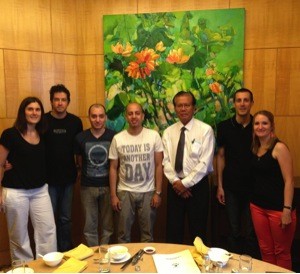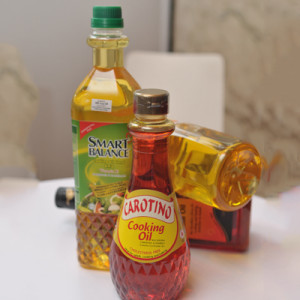French Greenies continue to oppose palm oil
It is most unfortunate and regrettable that the Green NGOs in France failed to be guided by the recent rejection of the proposed Nutella tax by mainstream politicians and the French government. They also failed to heed the decision of the French commercial court of Paris on the case between Systeme U and AIPH that the anti palm oil advertisement by Systeme U is misleading and dissemination of the advertisement campaign should be immediately terminated.
The most recent attempt by the anti-palm oil campaigners to recommend a ban on the use of palm oil in Paris appears to ignore both legal and public opinions that demonizing palm oil is not acceptable. The Green NGOs will soon discover that a country cannot introduce a ban on an internationally traded commodity even at the municipal level. Even if the Mayor of Paris introduces local regulations for banning palm oil for use in schools or government contracts, the French government has overall jurisdiction in matters related to trade and palm oil. The French government would need to comply with WTO provisions that recognize palm oil as an acceptable internationally traded commodity. It means that the federal laws of the country will prevail when there is a conflict with local regulations such as a municipal level initiative to ban palm oil.
This implies that the publicity stunt by the Green NGOs to ban palm oil by using the power of the Mayor of Paris will not materialize. Besides being legally wrong and conflicting with WTO provisions, it will be a shameful act of deception merely to cover up for failed previous attempts to smear the good image of palm oil. The justifications given to encourage the Mayor to institute a ban on palm oil in Paris are without merit and lack factual substantiations. None of the Paris Green Councilors have made an attempt to visit Malaysia and make an assessment on the Malaysian palm oil industry to verify if deforestation has occurred due to oil palm cultivation beyond the norms of agricultural development. The councilors have not cited any studies carried out in France or elsewhere that imply palm oil as being nutritionally unacceptable. In short, the anti palm oil campaigners have not been able to provide concrete evidence and quantification of how Malaysian palm oil is undesirable from either the environmental or nutritional stand point.
We have explained that more the 94% of the source of saturated fats in France are derived from animal fats, cheese, butter, milk and meat products. The saturated fat from palm oil is insignificantly small, and being a vegetable oil, palm oil is proven to be nutritionally acceptable as it behaves as an unsaturated fat according to a European study published in the American Journal of Clinical Nutrition (AJCN, July, 1987).
It is worth pointing out that palm oil is much needed by the food, oleochemical and cosmetic industries for its many good attributes that allow these sectors to remain competitive. Even a country like USA has adopted a coexistence strategy by accepting palm oil as a solution to supplement shortages in the oils and fats sector and as a replacement to undesirable and unhealthy trans fats in food products.
We again invite the Green party politicians and their NGOs to visit Malaysia to establish the right facts on the Malaysian palm oil industry which is an important economic pillar for the country. The industry is often credited for its role in eradicating poverty and has become a role model for many African countries. We are honoured that the first oil palm plantation in Malaysia was established by a Frenchman by the name of Henri Fauconnier in 1917. We are also appreciative that French scientists and agronomists have contributed to the understanding and development of the palm oil industry in Malaysia and other oil palm growing countries. We continue to encourage the French to lead in their professional science based approach to assess palm oil so that the true potential contribution of such a good oil can benefit the public.
It is the French who invented margarine to imitate butter, and this led to growth in demand for raw materials which subsequently allowed the palm oil industry to expand. The British and French colonial pioneers took great trouble to cultivate and develop oil palm in Asia, Africa and Latin America. It would be a shame if later generations of French people, through the over-aggressive greenies choose to oppose the grand design and vision of their own pioneers and inventors in supporting and promoting the development and growth of the oil palm industry which is an important food security source and continues to provide numerous other benefits to nations.










I’m calling up my credit card company to cancel my regular donation to the WWF. Green crooks!
Green bandits!
The Green NGOs have sold out to the European Commission. They’re just hired guns and paid assassins to do the hatchet job on palm oil!
The greenies have a motive for their actions against palm oil – its called the greenback, dinero, cash, payola! They are just surrogates of the European Commission who fund these modern day versions of the highwaymen of old to protect the EU’s own edible oil industries which are unable to hold a candle to the rampantly hyper yielding palm oil in the open market!